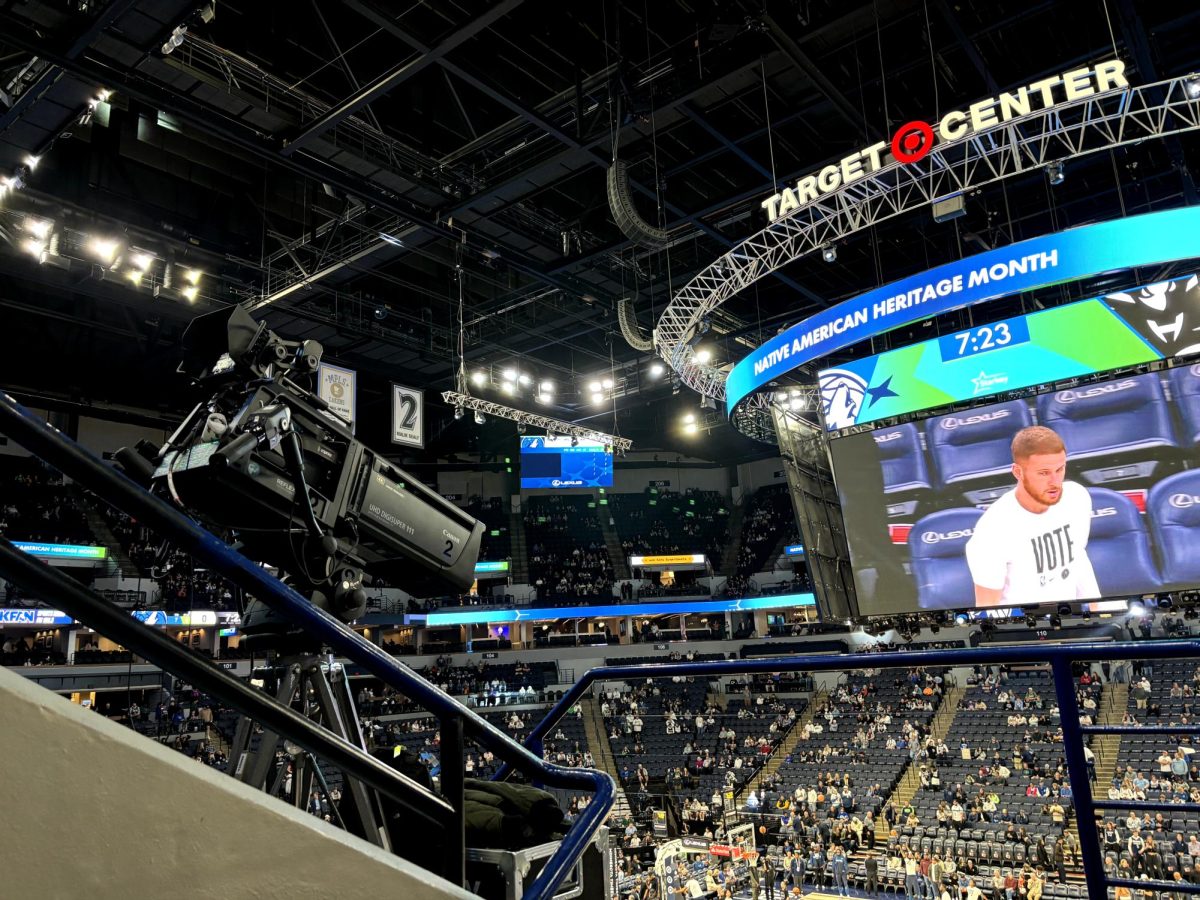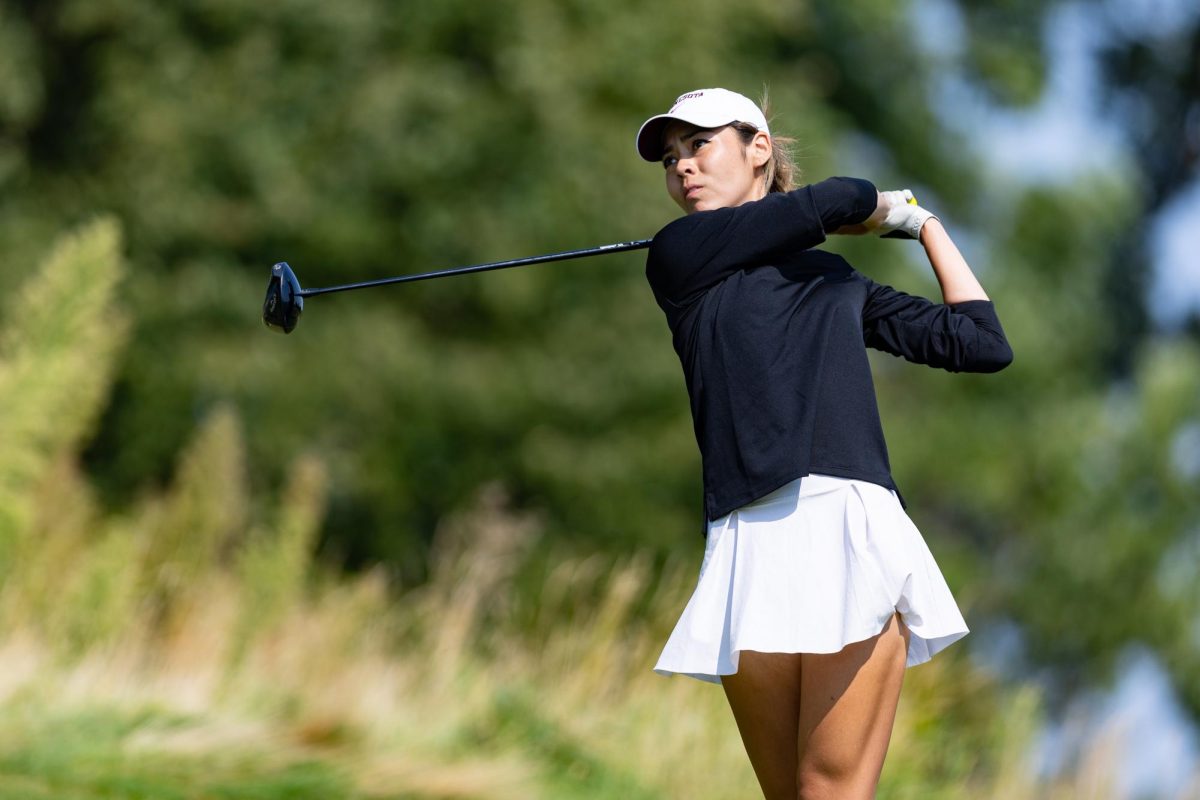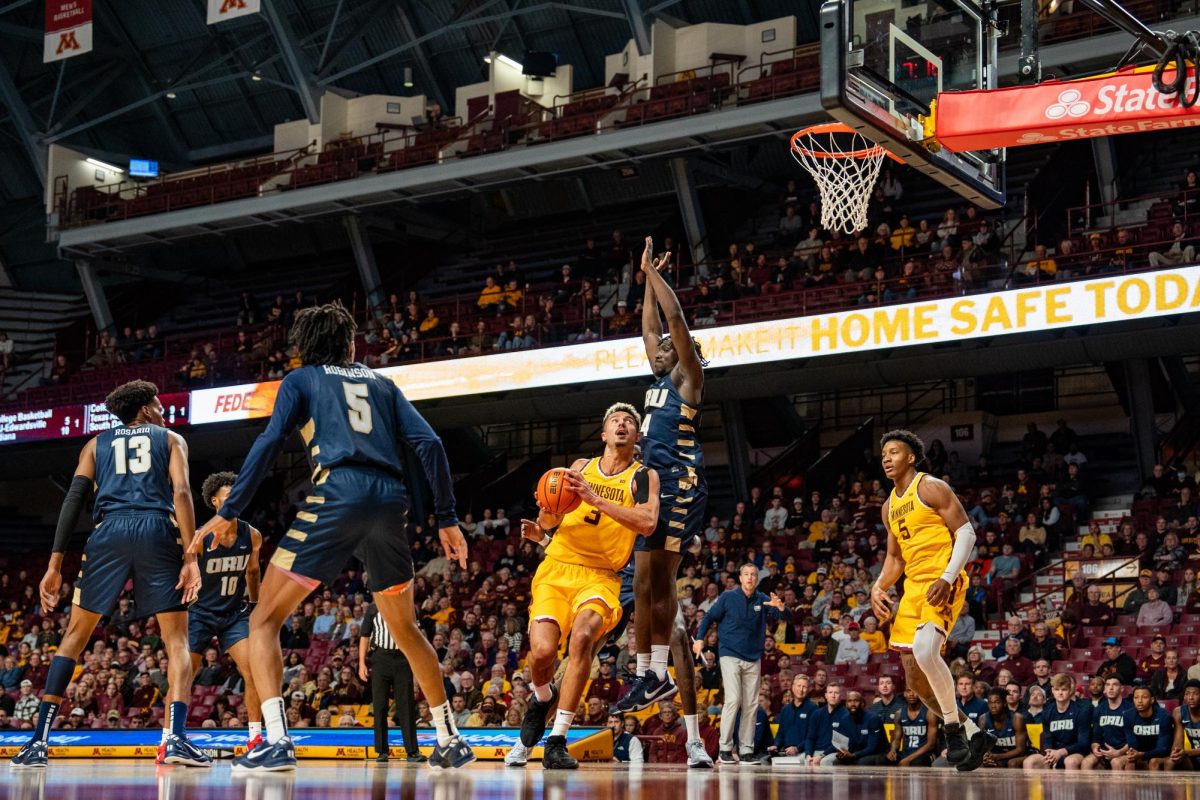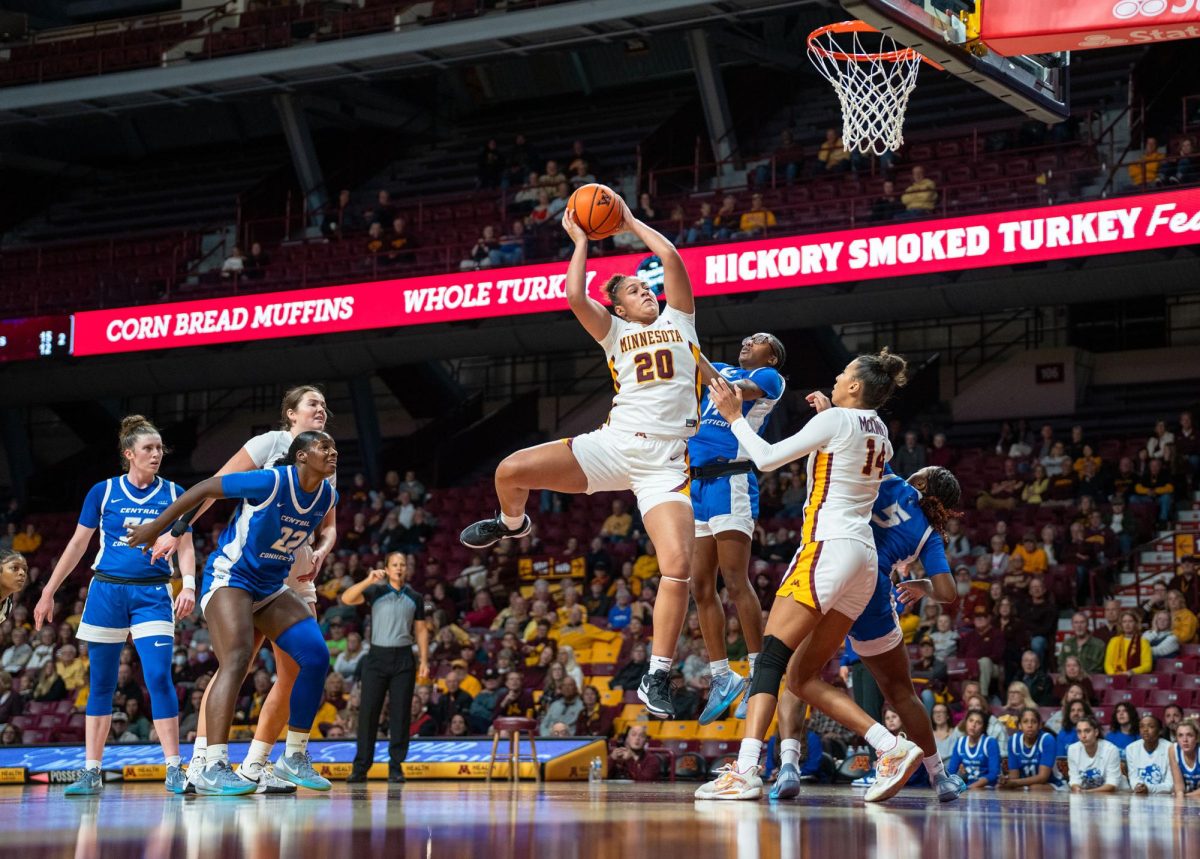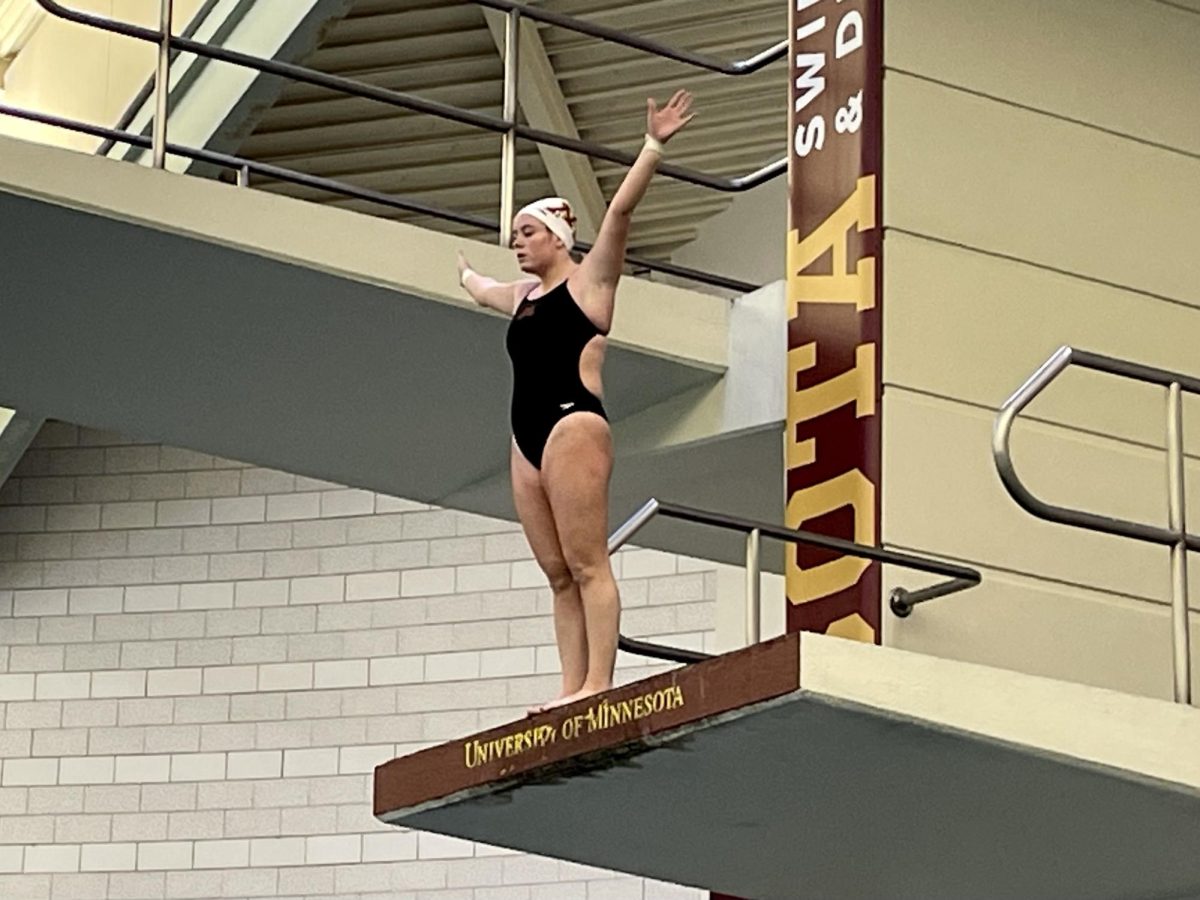With a verbal commitment to play baseball at the University of Minnesota already established, Justin Gominsky received a phone call from head coach John Anderson before his senior year of high school.
Anderson alerted Gominsky that his current GPA was not up to par with University standards, and he would have to improve it to gain acceptance.
For a guy who put baseball over everything, the academic challenge was tough. However, Gominsky got his grades up and attended Minnesota — a move that ultimately changed his life.
After retiring from professional baseball in the Houston Astros organization, Gominsky, 25, is back at the University working toward a bachelor’s degree in sport management.
But retirement hasn’t kept him away from baseball.
In July 2014, Gominsky and his friend, Eric Nockleby, founded the Minnesota Icemen — a youth club baseball program that fielded five teams this season.
In 2011, then-redshirt sophomore Gominsky opted to play professionally after hitting .307 for the Gophers that season. He was drafted in the 11th round by the Astros in the Major League Baseball Amateur Draft.
He signed with a bonus of about $100,000, which he thought would give him financial security in case baseball didn’t work out for him down the road.
Gominsky said the negotiations he and his family conducted with an Astros scout during that time introduced him to the business side of baseball.
“We were literally throwing out numbers left and right on how much we wanted to sign for,” Gominsky said. “I wanted to be covered academically, [so] I could come back to school and finish my degree.”
A 98 mph fastball to the wrist caused Gominsky to sit out for all of the 2013 season. And after a solid start during spring training camp the following year, Gominsky asked for his release from the team when it wanted to move him down.
“Being in that business is tough because you can’t really get close to people,” he said. “You always see a couple buddies, [who] shouldn’t be going home, get sent home every year because the guy in front of them was paid a lot more money than what they came in for.”
When his professional career ended, Gominsky saw an opportunity to get back into the game by coaching. From there, the Minnesota Icemen were born.
Though the club is not even a year old, Nockleby said the staff has seen tremendous progress so far.
“Maybe a year ago, some of these [players] didn’t even have that idea or believe that it would actually be possible for them to play in college,” Nockleby said. “Now, they’re more dedicated, committed and really growing as young men.”
That growth is a testament to the Icemen’s coaching staff, Nockleby said. The staff features former baseball players with a wide range of experience, including World Series-winning outfielder T.J. Bohn.
The Icemen reflect the lessons Gominsky and the rest of his staff learned through the various ranks of baseball, including one he said he learned during his time with the Gophers.
“[Coach Anderson and his staff] have this family atmosphere,” Gominsky said. “They do a really good job of instilling [that] into all of their players.”
Gominsky said the Icemen program has adopted the same style of community — every player on each of the five teams knows each other’s names.
That sort of camaraderie comes with spending a lot of time together.
The teams compete year-round, so the Icemen use Line Drive Sports, an indoor facility in Lino Lakes, Minn., that features batting cages, turf areas for fielding and pitching practice and a strength and conditioning area.
The facility also allows for the players to come in and do homework because Nockleby said, “they know they have no chance of getting to the next level if they aren’t strong academically.”
And perhaps that academic motivation comes from Gominsky himself, who is earning his degree.
“Being able to go back to school … has been a blast and really a lot of help for my business,” Gominsky said.
He plans to graduate with his degree in sports management and a minor in business this fall — a goal that was not particularly in sight when he received that wakeup call years ago from Anderson.
“He’s worked really hard to get better,” Anderson said. “To see him come back and graduate will be a great example for those kids to follow.”


